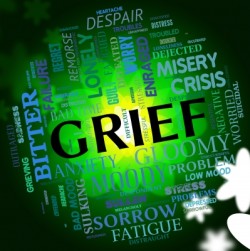 Decluttering comes down to a matter of physics. Most people just don’t have the space to comfortably keep everything they would like. Choices have to be made about what stays and what goes. Making so many decisions is hard enough, but the choices represent giving up something deeper than just the items in question, and the deeper loss creates grief.
Decluttering comes down to a matter of physics. Most people just don’t have the space to comfortably keep everything they would like. Choices have to be made about what stays and what goes. Making so many decisions is hard enough, but the choices represent giving up something deeper than just the items in question, and the deeper loss creates grief.
Here are common causes for decluttering grief
- Loss of identity or emotional attachment. Giving up the item feels like giving up a part of oneself or a loved one.
- Loss of opportunity. Giving up the item means you may lose an opportunity, be inconvenienced or have to pay more in the future.
- Loss of beauty or uniqueness. Giving up the item means giving up the pleasure of enjoying its beauty or appreciating its “one of a kind” quality.
- Loss of pride of stewardship. Giving up the item to the landfill or what may seem like a less than ideal charity can feel like forsaking your values and environmental conscientiousness.
I don’t deny any of these losses. For each of these losses, there is something gained by having less clutter, but it doesn’t make the loss any less real. Acknowledging the loss and the grief it causes can be helpful. Here are some ways to deal with the grief:
- Take a photo or write about the item
- Thank the item for its usefulness or value, and wish it well as it moves on
- Burn or destroy the item
- Create a “good-bye” box of items to be gone through later, in private, before ultimately disposing of them
- Reminisce and enjoy the item one last time
- Reminisce and have a good cry
- Acknowledge the passage of time, and mindfully focus on the future and new opportunities
- Speak with a counselor or someone trained in grief work
Whatever works for you is fine. What matters is that we acknowledge the grief and accept that loss and mourning are a part of the decluttering process.
What helps you grieve?
Image courtesy of Stuart Miles at FreeDigitalPhotos.net
